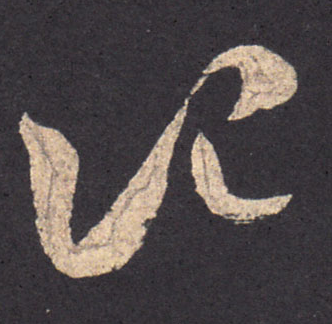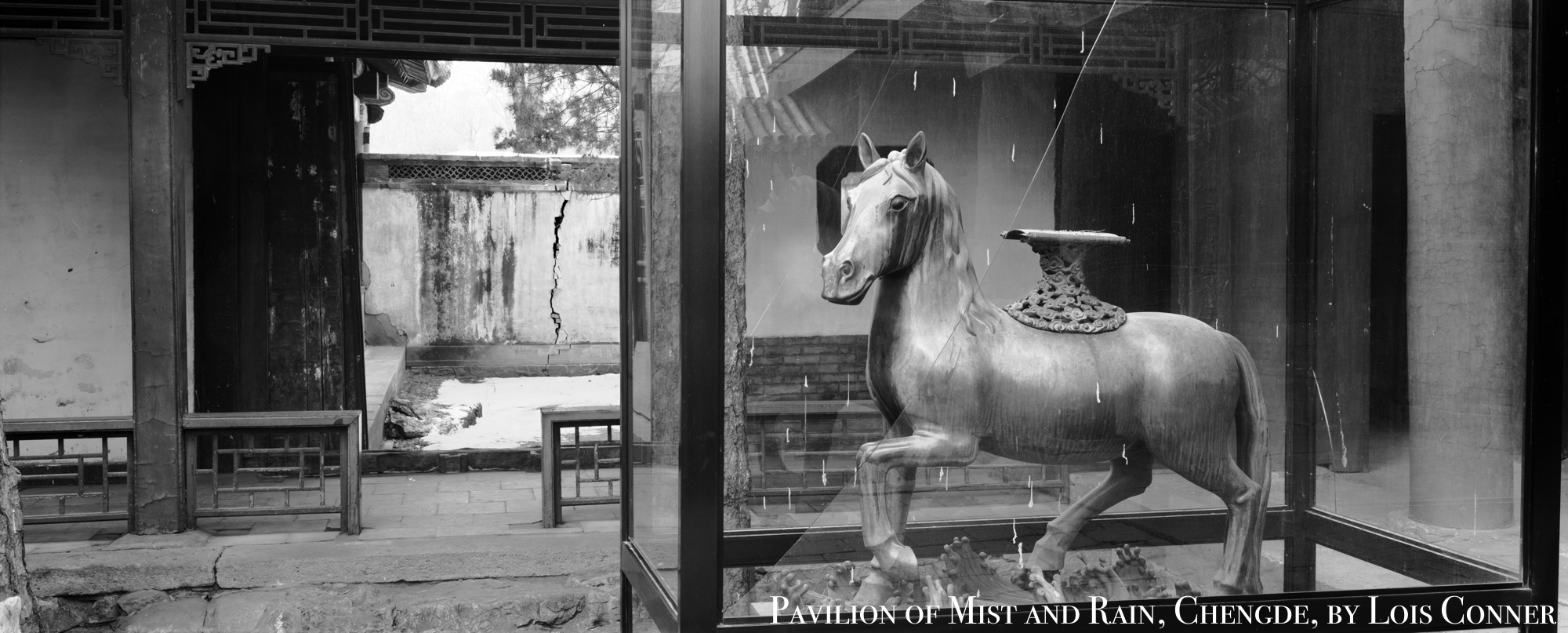Other People’s Thoughts is a section of the China Heritage site featured in our Journal. It is inspired by a compilation of quotations made by Simon Leys (Pierre Ryckmans), one of our Ancestors.
Pierre remarked that the modest volume of quotations recorded over his reading life was ‘idiosyncratically complied for the amusement of idle readers’ (see Simon Leys, Other People’s Thoughts, 2007). Our aim is similar: to amuse our readers (idle or otherwise), as is our modus operandi: to build up an idiosyncratic compendium, one that reflects the interests of The Wairarapa Academy for New Sinology and its coterie.
In collecting this material, and by adding to it over time (this is the eighth instalment in the series), we accord also with a Chinese literary practice in which quotations — sometimes called yǔlù 語錄, literally ‘recorded sayings’ — have a particular history, and a powerful resonance.

The most famous collection of recorded sayings is The Analects 論語, compiled by disciples of Confucius. Then there is the timeless 5000-words of Laozi’s The Tao and the Power 道德經, as well as the Chan/Zen 禪宗 tradition of what in English are known by the Japanese term kōan 公案 — anecdotes or statements aimed at goading an individual towards enlightenment — that date from the Tang dynasty. Modern imitations range from the political bon mots of Mao Zedong to excerpts from the prolix prose of Xi Jinping’s tireless speech writers, as well as published snippets from arm-chair philosophers and motivational speakers.
Other People’s Thoughts also finds inspiration in the ‘poetry talks’ 詩話, ‘casual jottings’ 筆記 and ‘marginalia’ 眉批 of China’s literary tradition.
— Geremie R. Barmé,
Editor, China Heritage
16 April 2018
***
Other People’s Thoughts Index
- Introducing Other People’s Thoughts, 14 February 2017
- More Other People’s Thoughts, 8 May 2017
- Even More Other People’s Thoughts, 15 June 2017
- Other People’s Thoughts, IV, 6 August 2017
- Other People’s Thoughts, V, 22 September 2017
- Other People’s Thoughts, VI, 16 November 2017
- Other People’s Thoughts, VII, 20 December 2017
- Other People’s Thoughts, VIII, 9 March 2018
Other People’s Thoughts IX
Imperial Ambitions
In China, the majority of individuals endowed with a powerful ambition have from antiquity onwards dreamed of becoming emperor… . This kind of ambitious person has always existed in all periods of history. When I began to advocate revolution, six or seven out of ten of those who rallied mourned were harbouring this tie of imperial dream at the outset. But our aim in spreading the revolutionary ideal was not only to overthrow the Manchu dynasty, it was in fact to set up the republic. We therefore gradually succeeded in ridding the majority of these individuals of their imperial ambitions. Nevertheless, there remained among them one or two who, as much as thirteen years after the founding of the republic, had not yet abandoned their old ambition of becoming emperor, and it was for this very reason that even in the ranks of revolutionary party people were continually cutting each other’s throats… . If everyone retains this imperial mentality, a situation arises where comrades fight each other, and the whole population of the country is divided against itself. When these unceasing fratricidal struggles spread throughout the country, the population is overwhelmed by endless calamities… . Thus in the history of China through the generations, the imperial throne has alway been fought over, and all the periods of anarchy which the country has then gone through have had their origin in this struggle for the throne. In China there has for the last few thousand years been a continual struggle around the single of issue of who is to become emperor. (Sun Yat-sen, 三民主義,民權主義第一講, translated by Simon Leys in The Chairman’s New Clothes, 1977, p.56)
The Great Helmsman #2
大國的揚帆遠航,離不開掌舵者;民族的復興徵程,呼喚領路人。
在春風吐綠、草木萌發的美好時節,十三屆全國人大一次會議舉行全體會議,選舉產生新一屆國家機構領導人員,中共中央總書記、中央軍委主席習近平全票當選中華人民共和國主席、中華人民共和國中央軍事委員會主席。這充分體現了黨的意志、人民意志、國家意志的高度統一,充分反映了全黨全軍全國各族人民的共同願望和心聲,必將鼓舞和動員億萬人民更加緊密團結在以習近平同志為核心的黨中央周圍,同心同德,開拓進取,決勝全面建成小康社會,奪取新時代中國特色社會主義偉大勝利,為實現中華民族偉大復興的中國夢而不懈奮鬥。 (Renmin Ribao, 17 March 2018)
Juvenal with a Typewriter
In a famous phrase the mid-nineteenth century Russian rebel writer Herzen spoke of his fear for the future — the appearance of a ‘Genghiz Khan with the telegraph’. In the years that have meanwhile passed his prediction proved well founded. Yet it was not only the tyrants but also those who struggled for freedom who benefited from technical change. He failed to predict Juvenal with a typewriter. (Robert Conquest, ‘Introductory’, Tyrants and Typewriters: Communiques in the Struggle for Truth, 1989)
Growth
Perpetual growth is the creed of a cancer cell. (Paul Ehrlich)
Looking Back
The backward look transforms its object. … History cannot be touched without changing it. (Sigfried Giedion)
Marxist Pabulum
In modern Communist teaching Marxist argument is simply a way of giving nice names to nasty things. (Robert Conquest, ‘Marxist Disillusion: Nagy and Leonhard’, 1959)
Worldview
Perhaps the hardest thing for humans to do is to imagine the world as it is imagined by others. We tend to confuse acting in accordance with the goals and values of the society in which we live with rationality; we tend to confuse intelligence with thinking in accordance with those goals and values. And, of course, we are always inclined to see events as predetermined — and we are almost always wrong. (Masha Gessen, The Fundamental Uncertainty of Mueller’s Russia Indictments, The New Yorker, 20 February 2018)
Censorship
There’s something rather mid-20th century about censorship. Then again, that’s no surprise, since international politics is going through a retro phase — the Chinese Communist Party leader granting himself leadership for life, the Russian president announcing he has developed a nuclear super-weapon, right-wing parties assuming power in Europe by comparing immigrants to vermin, spies-on-the-run getting poisoned in London. Like ghosts from the past, these old tropes now haunt the present. (Armando Ianucci, Russia Banned My Movie. Hold Your Applause, The New York Times, 9 March 2018)
East Asia
The biggest mistake US policy-makers have made in dealing with China has been to underestimate how determined it is to replace America as East Asia’s leading power. (Hugh White)
Reason
Of the uncertainties of our present state, the most dreadful and alarming is the uncertain continuance of reason. (Samuel Johnson)
Part Human
He wasn’t a complete human being at all. He was a tiny bit of one, unnaturally developed; something in a bottle, an organ kept alive in a laboratory. I thought he was a sort of primitive savage, but he was something absolutely modern and up-to-date that only this ghastly age could produce: a tiny bit of a man pretending he was the whole. (Evelyn Waugh, Brideshead Revisited, 1945)
Great Leaders
In keeping with the official atheism of the Communist state, the phrase ‘thank God’ (in Russian, ‘slava Bogu’, literally ‘glory to God’) was not to be used. Stalin decreed that, in its place, Soviet citizens should say, ‘slava Stalinu’, or ‘thank Stalin’.
The story is told of two Red Army guards walking their post before some official installation. It’s late, and their tour of duty is almost over. As they pass each other marching in opposite directions, one soldier says, ‘Thank God, we’ve only got fifteen minutes to go.’
As they pass again, the other soldier says, ‘Thank Stalin, we only have ten more minutes left.’
Later the second young man remarks: ‘I noticed you said, “Thank God”.’ What would you say if there were no God?”
After a moment, the first soldier replies: ‘I don’t know. But I noticed you said, “Thank Stalin”. What would you say if there were no Stalin?’
‘Thank God!’
(Soviet joke)
Cold Wars
One is still occasionally told, it is true, that for a Westerner to register any fact or utter any opinion displeasing to (or insufficiently adulatory of) the Soviet official line is an act of ‘Cold War’. The Cold War, it is alleged, is long since over, so that such activity is as obsolete as it is reprehensible. From the official Soviet side, of course, no amount of political détente ever meant any relaxation of the vast barrage of violent criticism of the Western system, Western ideas and Western actions. In fact, it has been laid down as a central principle that ‘peaceful co-existence’ in no way implies relaxation of the ‘ideological’ struggle. In fact, the struggle of the regime against these intellectuals is a reflection, or rather an instance, of its permanent struggle against Western concepts. (Robert Conquest, ‘Alternative Russia: The Chronicle of Current Events’, 1972)
The Value of Freedom
Solzhenitsyn declared himself unable to comprehend how the West can possess freedom and not value it. This was a telling rhetorical point but as a tenet in his position — which it is, recurring throughout his work — it has some awkward logical consequences. For example, if freedom is valued most when it is nearest to being extirpated, and least when it is most prevalent, then perhaps freedom needs to be threatened in order to be conscious of itself. It’s a high price to pay for consciousness.
There is no possibility of overvaluing freedom, but there is the possibility of valuing it wrongly, and I think that to a certain extent Solzhenitsyn does so. He is on sure ground when he warns against tyranny but weak ground when he laments that liberty has not made us morally aware. Liberty can’t do that: political freedom means nothing unless it is extended to those who are incapable of valuing it. Warning the West against the East, Solzhenitsyn can hope to be of some effect. Warning the West against itself, he is surely addressing himself to the wrong object. The West lacks a common moral purpose because it is free, so there is no point in his attacking our lack of moral purpose unless he attacks freedom too. (Clive James, Solzhenitsyn warns the West, 7 March 1976)
Stinking to High Heaven
Somehow in all countries, cranks and crackpots and schizophrenics have always believed that slovenliness is the mark of genius and that the best assurance of immortality is the refusal to dress like a gentleman. There is also a curious notion that filth and squalor imply contempt for material surroundings and therefore high spirituality, the logical conclusion of which is that heaven must reek with stinking angels. (Lin Yutang, The Gay Genius: The Life and Times of Su Tungpo, 1947)
Australia: fair go to fair gone
Appalling as it was, the cricket cheating scandal is merely a symptom of a wider national sickness. There is something rotten in the Commonwealth of Australia. A culture of greed, selfishness, envy, cruelty and often criminal corruption is gnawing at the nation’s heart. The notion of the ‘fair go’, once prized as the very essence of Australianism, has become an empty slogan mouthed by the sharp-elbowed spivs and chancers hell-bent on trampling the rest of us into the blood and sawdust as they claw their way to the top. (Mike Carlton, ‘The land of the fair gone’, The Saturday Paper, 31 March 2018)
The Modern Conservative
The modern conservative is engaged in one of man’s oldest exercises in moral philosophy; that is, the search for a superior moral justification for selfishness. (John Kenneth Galbraith)
Betrayal
Let me give you some advice: assume everyone will betray you and you will never be disappointed. (Tobias Beckett in ‘Solo: A Star Wars Story’)
Drag
We’re all born naked, the rest is drag. (RuPaul)
Living On
You go on just so you can make life a little more uncomfortable for the people who make everybody’s lives miserable. (Lee Yee, My Qingming, China Heritage, 10 April 2018)
悲觀而不消極,懷憂而不喪志。這是我們的明天。 (Lee Yee, 15 March 2018)

